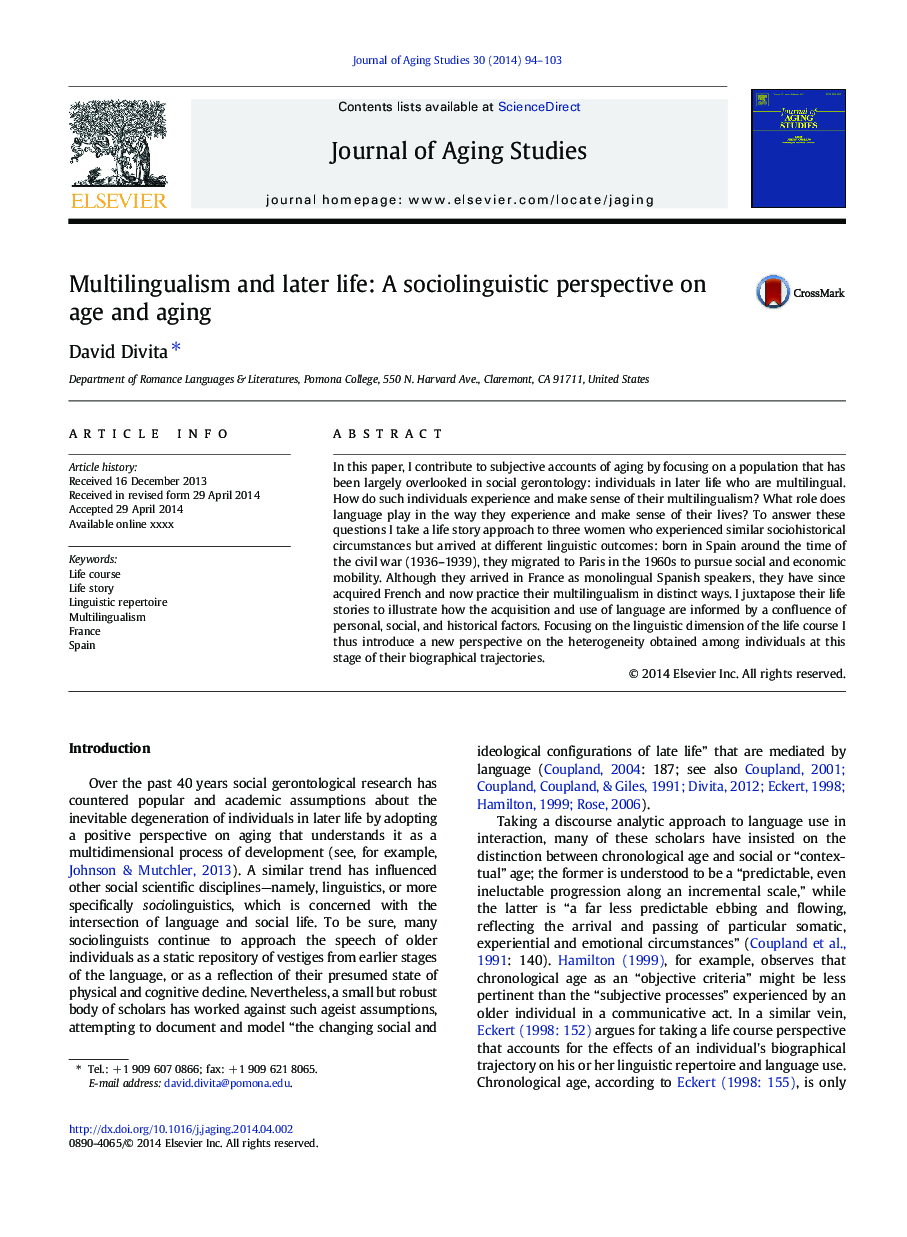| Article ID | Journal | Published Year | Pages | File Type |
|---|---|---|---|---|
| 7517759 | Journal of Aging Studies | 2014 | 10 Pages |
Abstract
In this paper, I contribute to subjective accounts of aging by focusing on a population that has been largely overlooked in social gerontology: individuals in later life who are multilingual. How do such individuals experience and make sense of their multilingualism? What role does language play in the way they experience and make sense of their lives? To answer these questions I take a life story approach to three women who experienced similar sociohistorical circumstances but arrived at different linguistic outcomes: born in Spain around the time of the civil war (1936-1939), they migrated to Paris in the 1960s to pursue social and economic mobility. Although they arrived in France as monolingual Spanish speakers, they have since acquired French and now practice their multilingualism in distinct ways. I juxtapose their life stories to illustrate how the acquisition and use of language are informed by a confluence of personal, social, and historical factors. Focusing on the linguistic dimension of the life course I thus introduce a new perspective on the heterogeneity obtained among individuals at this stage of their biographical trajectories.
Related Topics
Health Sciences
Medicine and Dentistry
Geriatrics and Gerontology
Authors
David Divita,
